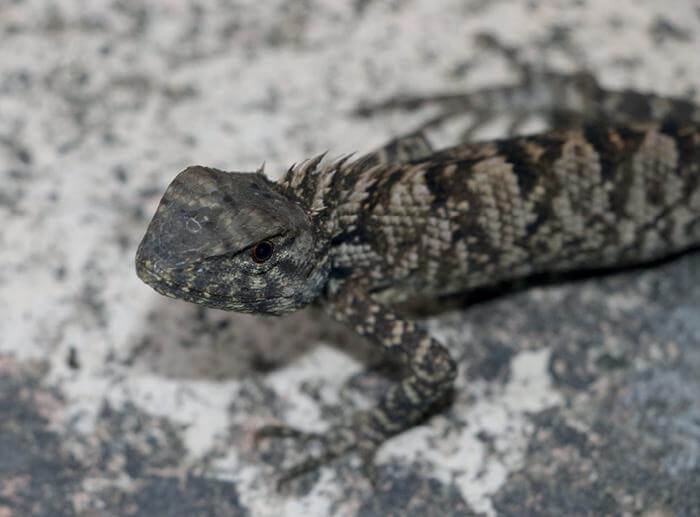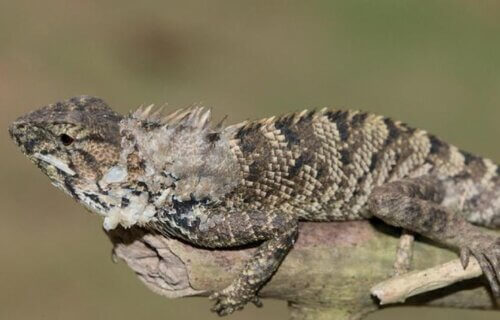NANNING, China — A tiny iguana measuring less than four inches long is the newest species in the reptile family. Researchers in Asia discovered the little lizard while working in Southern China and Vietnam. First mistaken for another species in the region, scientists say this orange-tongued iguana is a brand-new creature in the animal kingdom.
“From 2009 to 2022, we conducted a series of field surveys in South China and collected a number of specimens of the Calotes versicolor species complex, and found that the population of what we thought was Calotes versicolor in South China and Northern Vietnam was a new undescribed species and two subspecies,” says Yong Huang, whose team described the new species.
Officially, Wang’s garden lizard (Calotes wangi) measures just under nine centimeters long, making it about the same size as a credit card!
“Calotes wangi is found in subtropical evergreen broad-leaved forests and tropical monsoon forests in southern China and northern Vietnam, mostly in mountainous areas, hills and plains on forest edges, arable land, shrub lands, and even urban green belts. It is active at the edge of the forest, and when it is in danger, it rushes into bushes or climbs tree trunks to hide. Investigations found that the lizards lie on sloping shrub branches at night, sleeping close to the branches,” Yong Huang adds in a media release.

While it’s unknown if this new species is a fan of the baseball season, the team does note Calotes wangi is typically only active between April and October. In the tropics, that range stretches from March to November. The iguana reportedly eats a variety of local critters, including insects, spiders, and other arthropods (invertebrate insects).
At the moment, researchers do not believe this species is threatened or endangered, but they did find that Calotes wangi’s habitat is “fragmented” in some areas of Asia. Specifically, humans could be a threat to the tiny lizards, as local populations use them for anything from natural medicines to food.
Yong Huang’s team is urging local governments to strengthen their environmental regulations to make sure this new species with an orange tongue sticks around for years to come.
The discovery is published in the journal ZooKeys.
You might also be interested in:
- ‘Delightfully strange’: Mysterious golden object pulled from Gulf of Alaska could be new species
- Iguana steals a toddler’s cake, leaves her with a rare bacteria-infected bite
- Scientists solve mystery of how lizards regenerate their tails — The answer may cure arthritis


Even just 🚙 down the road in your own city
Make sure your prescriptions
Are marked and in their original bottles.I got stop once on my way to work he asked me what was in the bottle in the backseat but wouldn’t let me turn my head to look. I am on 7 so wasn’t sure.